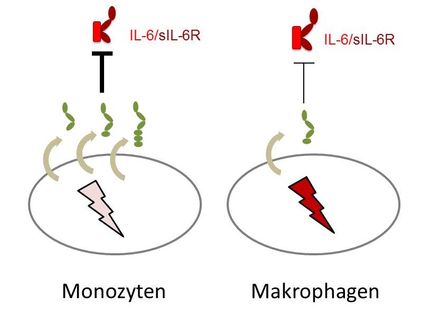Biotie to continue development of and maintain global rights to BTT-1023, its novel VAP-1 antibody for inflammatory disease
Biotie announced that it maintains global development and commercialization rights to BTT-1023 (ex-Japan, Taiwan, Singapore, New Zealand, and Australia), following Roche's decision not to exercise its opt-in right for strategic portfolio reasons. BTT-1023 is Biotie's novel fully human monoclonal antibody targeting vascular adhesion protein-1 (VAP-1) that has recently completed a successful Phase Ib study in rheumatoid arthritis patients and is due to complete a Phase Ib trial in psoriasis patients around mid-year 2010.
Timo Veromaa, Chief Executive Officer of Biotie, commented: "VAP-1 is a novel target in inflammatory disease and BTT-1023 represents a truly exciting and differentiated product for the treatment of rheumatoid arthritis, psoriasis and other inflammatory conditions. Maintaining the rights to BTT-1023 in key pharmaceutical markets enables us to initiate discussions with potential partners and allows us to control how we maximize the value of this product. We have a solid financial position and look forward to continuing the development of BTT-1023 to its next value inflection point."
In January 2010, Biotie reported top-line data from a Phase Ib study (BTT12-CD015) in rheumatoid arthritis patients. The study evaluated the safety, tolerability and pharmacokinetics of repeated doses (up to 8mg/kg) of the intravenously administered antibody in 24 rheumatoid arthritis patients with an inadequate response to methotrexate. The trial showed that BTT-1023 was generally well tolerated, and no serious or severe adverse events were reported. Although not designed to enable statistical evaluation of therapeutic activity, patients receiving the higher doses of BTT-1023 had better responses in several standard assessments of treatment effect (including DAS28 and ACR scores) than those patients receiving placebo.
Most read news
Other news from the department research and development

Get the life science industry in your inbox
By submitting this form you agree that LUMITOS AG will send you the newsletter(s) selected above by email. Your data will not be passed on to third parties. Your data will be stored and processed in accordance with our data protection regulations. LUMITOS may contact you by email for the purpose of advertising or market and opinion surveys. You can revoke your consent at any time without giving reasons to LUMITOS AG, Ernst-Augustin-Str. 2, 12489 Berlin, Germany or by e-mail at revoke@lumitos.com with effect for the future. In addition, each email contains a link to unsubscribe from the corresponding newsletter.





















































